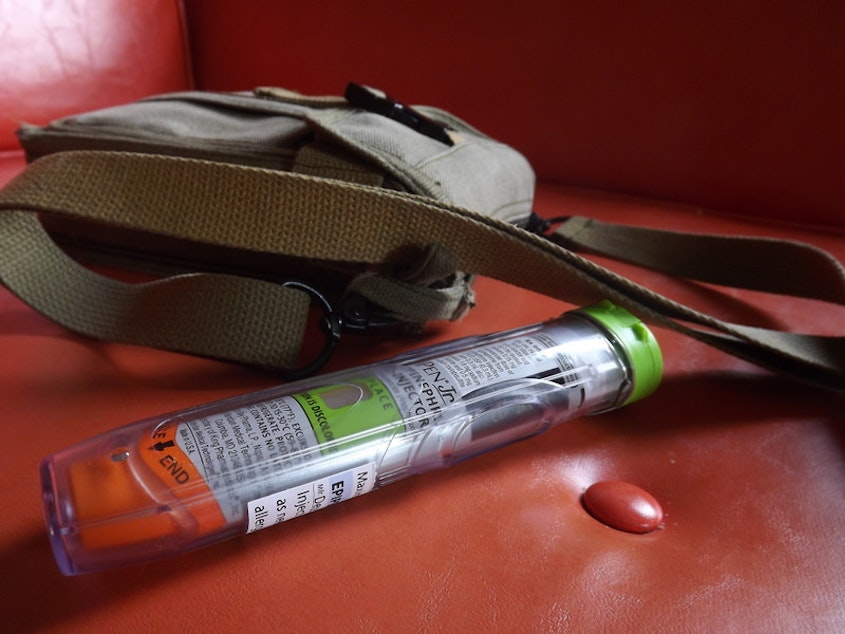King County's incredibly cheap answer to the EpiPen

One solution to the soaring price of EpiPens: Build a replacement that costs a fraction as much.
Jim Duren of King County Emergency Medical Services told KUOW’s Kim Malcolm that his agency did just that in 2013, building its own injection kit.
“Excluding the medication, the kit itself costs $15 with all the supplies,” he said. And the doses of adrenaline? “Somewhere between $2.50 and 5.”
And when the medication expires, it’s easy to replace for that $2.50 or so. Contrast that with having to pay hundreds of dollars for a new EpiPen.
The cost of those EpiPens has risen sharply in recent years, and consumer wrath and congressional scrutiny boiled over this week.
Sponsored
But Duren, professional standards manager for the agency after a long career as a paramedic, said cost wasn’t the only factor that drove the county to build the kit. There was also a change in how paramedics decided which patients should get treatment with adrenaline in an emergency.
“We would only administer the EpiPen when they were in dire need. So they were in anaphylactic shock,” he said. “And the new approach that the allergists were teaching their patients was if there were mild symptoms, administer epinephrine to prevent the severe allergic reactions.”
Duren says his agency saved about $150,000 in the first year using the kits and now saves about $250,000 annually. That’s even though they’re used in more than twice as many situations than EpiPens were under the old protocol.
The program has been so successful that King County EMS sells the kits (minus the adrenaline) at cost to other emergency medical providers across Washington and in seven other states.
“We’ve been getting inquiries about twice a week from other states and counties about our program,” he said.
Sponsored
Some of those agencies are paying 75 percent of their equipment budget for EpiPens, he said.
That's in departments “that don’t have a lot of money to begin with,” he said.
He said the largest state to adopt the program is New York, which now has a pilot project statewide.
EpiPens are often carried by people at risk of life-threatening allergic reactions, and the company has been seen as price-gouging a captive customer base.
Duren says the King County EMS kit isn’t a candidate for the general market because of training required to use syringes. But he said the kits might be adaptable for use by schools.



